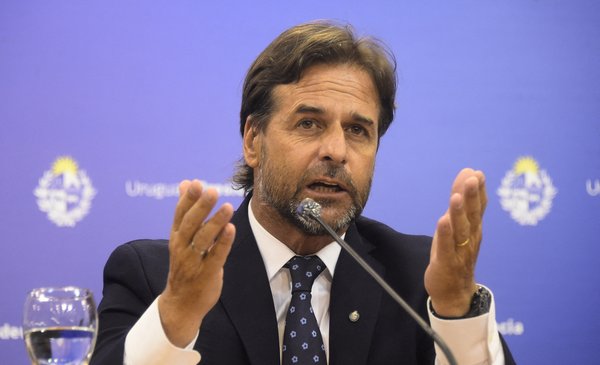The President of the Republic, Luis Lacalle Pou, was consulted this Wednesday about the conflict maintained by the Association of Bank Employees of Uruguay (AEBU) with the Executive Executive Power in rejection of the salary adjustment arranged for 2022.
“I don’t want to get into a discussion if they have reasons or not. Obviously when one sees what the salaries and economic privileges of the public banking sector have been, when one sees the unemployment that exists in other places or people who have not benefited in these times, a strike in that sense”he stated at a press conference after participating in the launch works for the La Charqueada bridge that will link Rocha with Treinta y Tres.
During the last weeks, the banking union carried out strikes in all the official banks, and this Tuesday night ordered a similar measure in the Securities Clearing House that is in force, and that may affect the operation of checks.
In addition, the union announced the possibility of increasing the measures with 72-hour stoppages starting Friday that “could leave Uruguay without a financial system for 10 days,” according to the president of the Official Banking Council, Lorena Lavecchia, on Monday.. AEBU delivered a letter to the president and requested an interview to explain his demands. It is considered that neither the Office of Planning and Budget, nor the Ministry of Economy are willing to sit down to negotiate.
“Stop banking, financial, public activity, is to stop a large part of the country’s economic apparatus. It doesn’t seem fair to those who are going to suffer it. (…) In this specific case, it does not seem to be the public officials who have been harmed in any way at this stage,” said Lacalle Pou.
For its part, the president of the Republic Bank (BROU), Salvador Ferrétold Underlined on Wednesday that the union measures “are being disproportionate with respect to the basic situation.”
“We are harming clients, our own staff and society as a whole. They harm us all.”, he claimed. The executive added that the negotiation demanded by the union with the government “escapes the authorities of the bank.”
A central point of difference between the union and the Executive Power lies in the salary adjustment ordered by the government for official banks in 2022. This adjustment consists of an increase of 5.8%, tied to projected inflation. The formula is complemented with corrections for 2023 and 2024 corresponding to the difference between the projected inflation and the actual inflation.
AEBU maintains that there is a salary loss of approximately 3% generated in 2021, and the government says it cannot compensate her immediately. In addition, it is considered that the proposal of a 5.8% adjustment in force since January implies a salary drop that would also be below the adjustment offered to the other state unions. These would have a 1.2% recovery of the loss suffered in January 2021, and would arrive on this basis at an adjustment of 7% in 2022. Other points of the union platform include the entry of personnel and that the National Housing Agency ( ANV) is incorporated into the collective agreement of the sector.
















